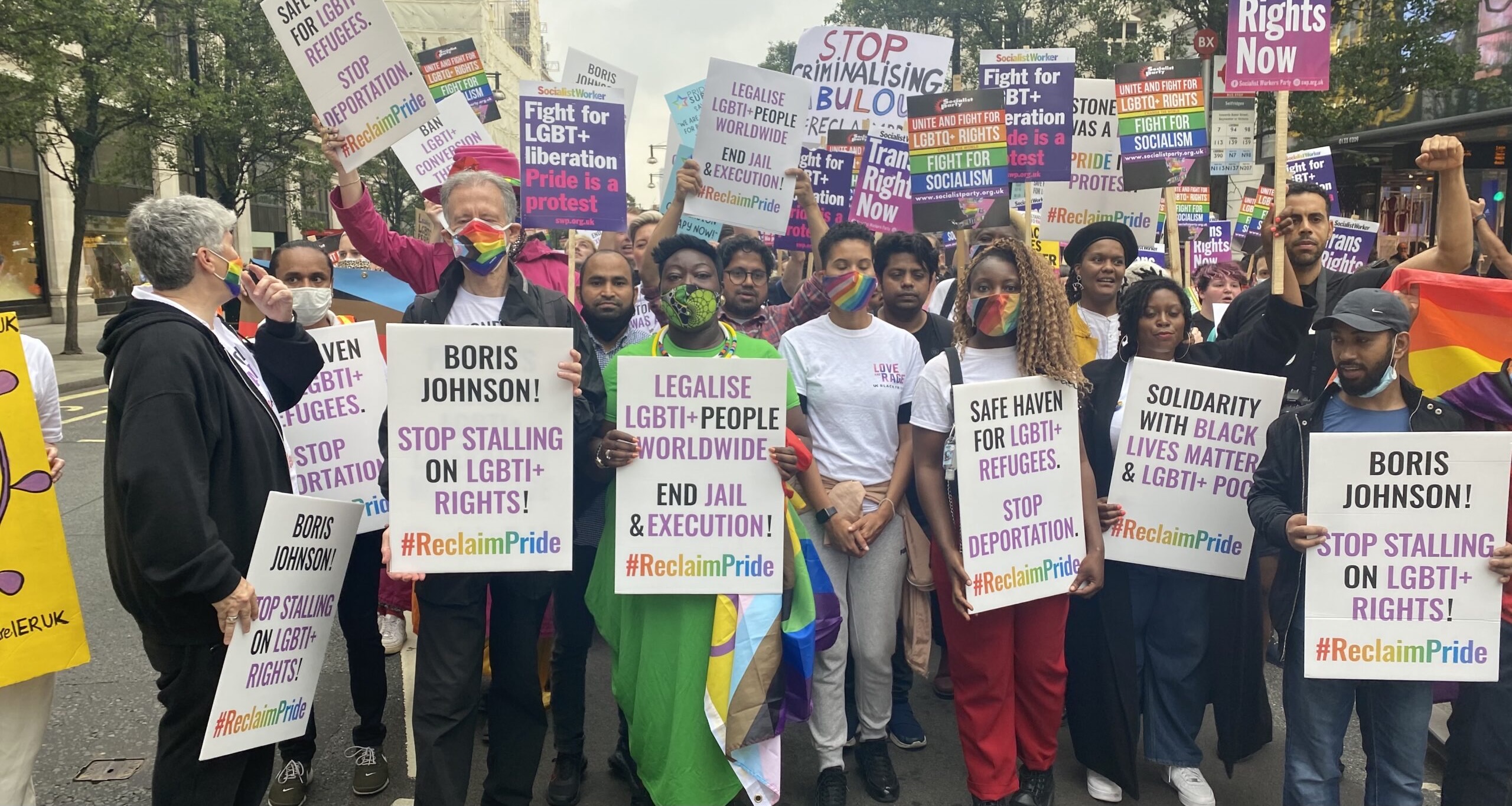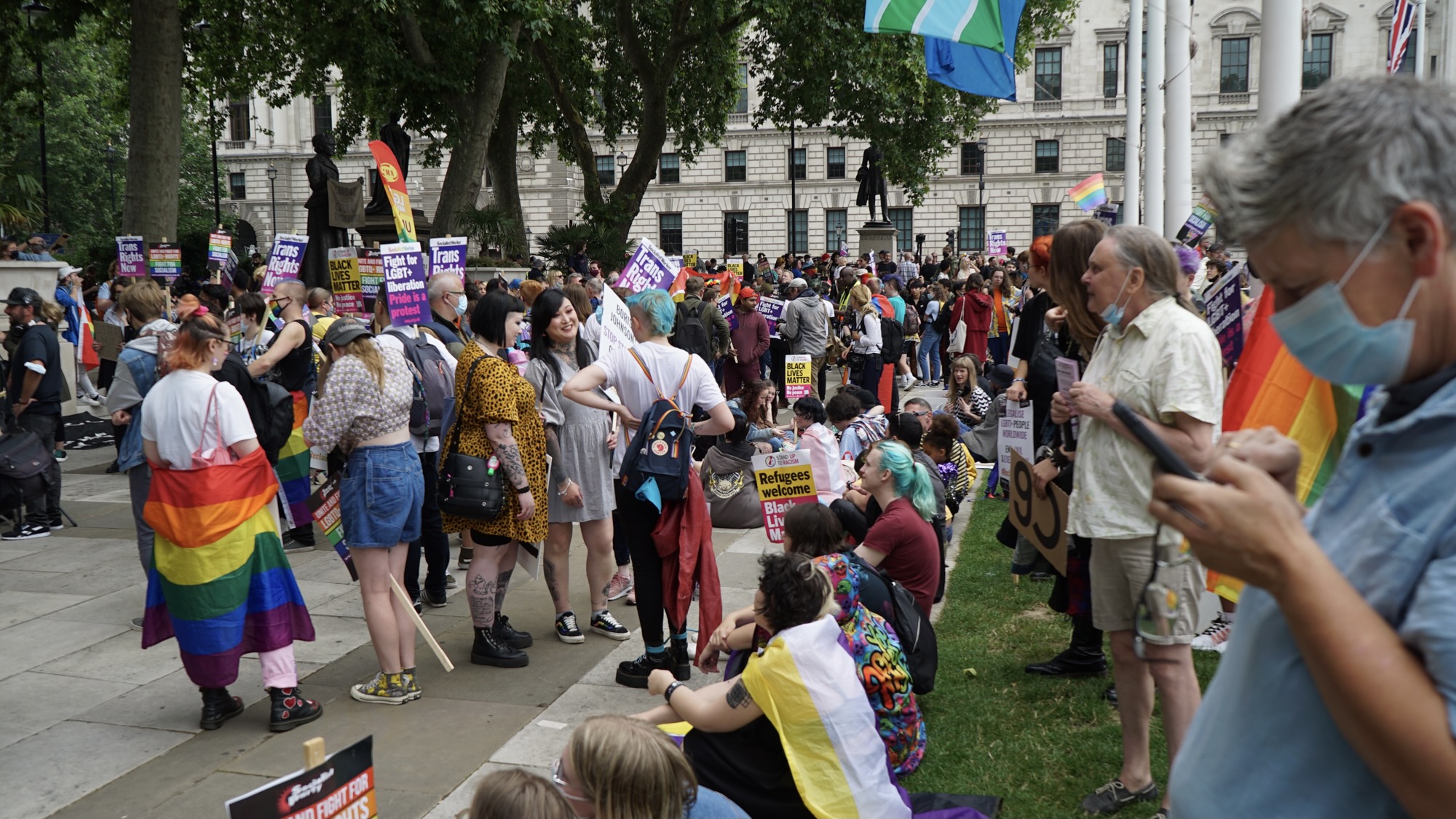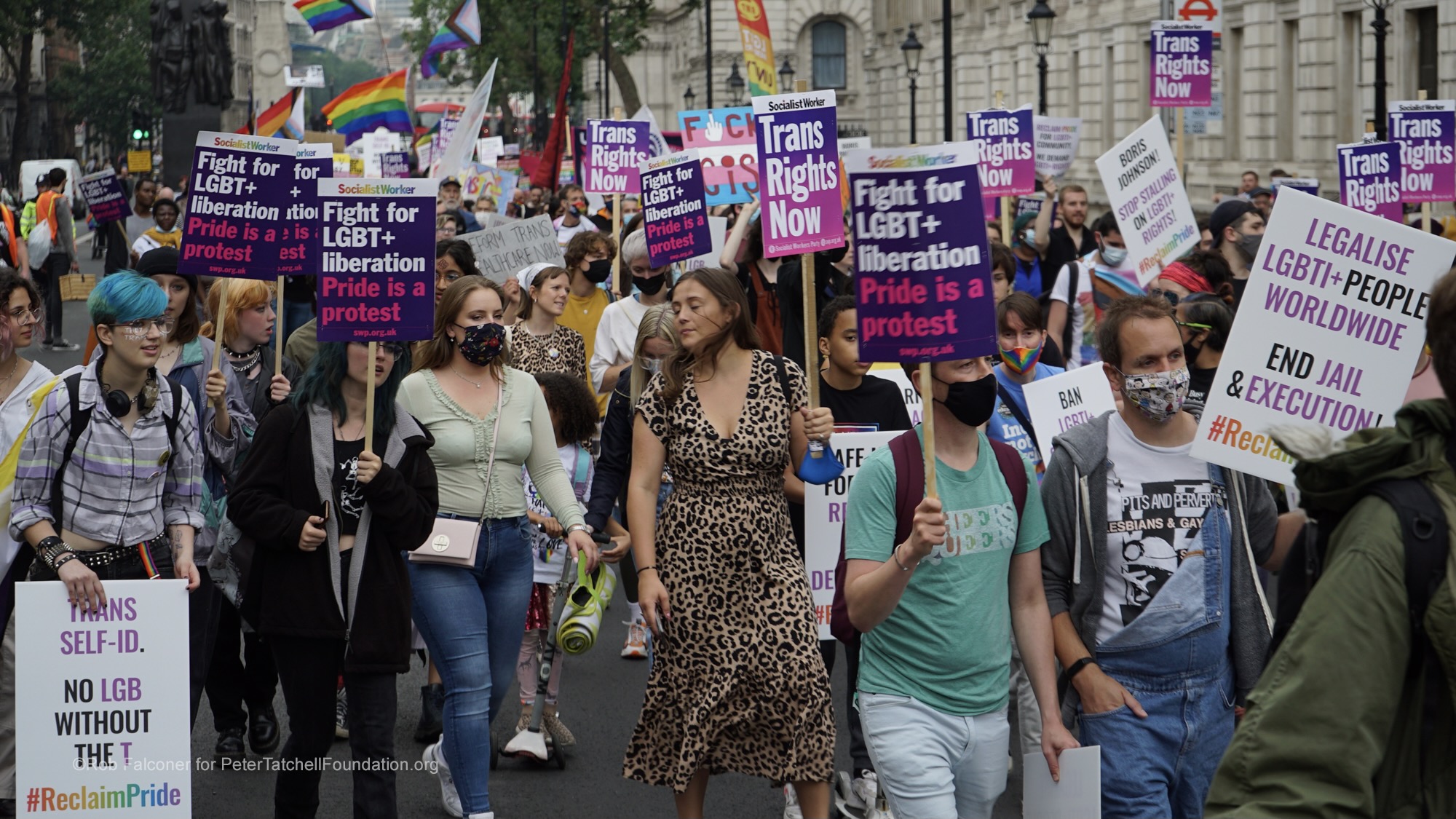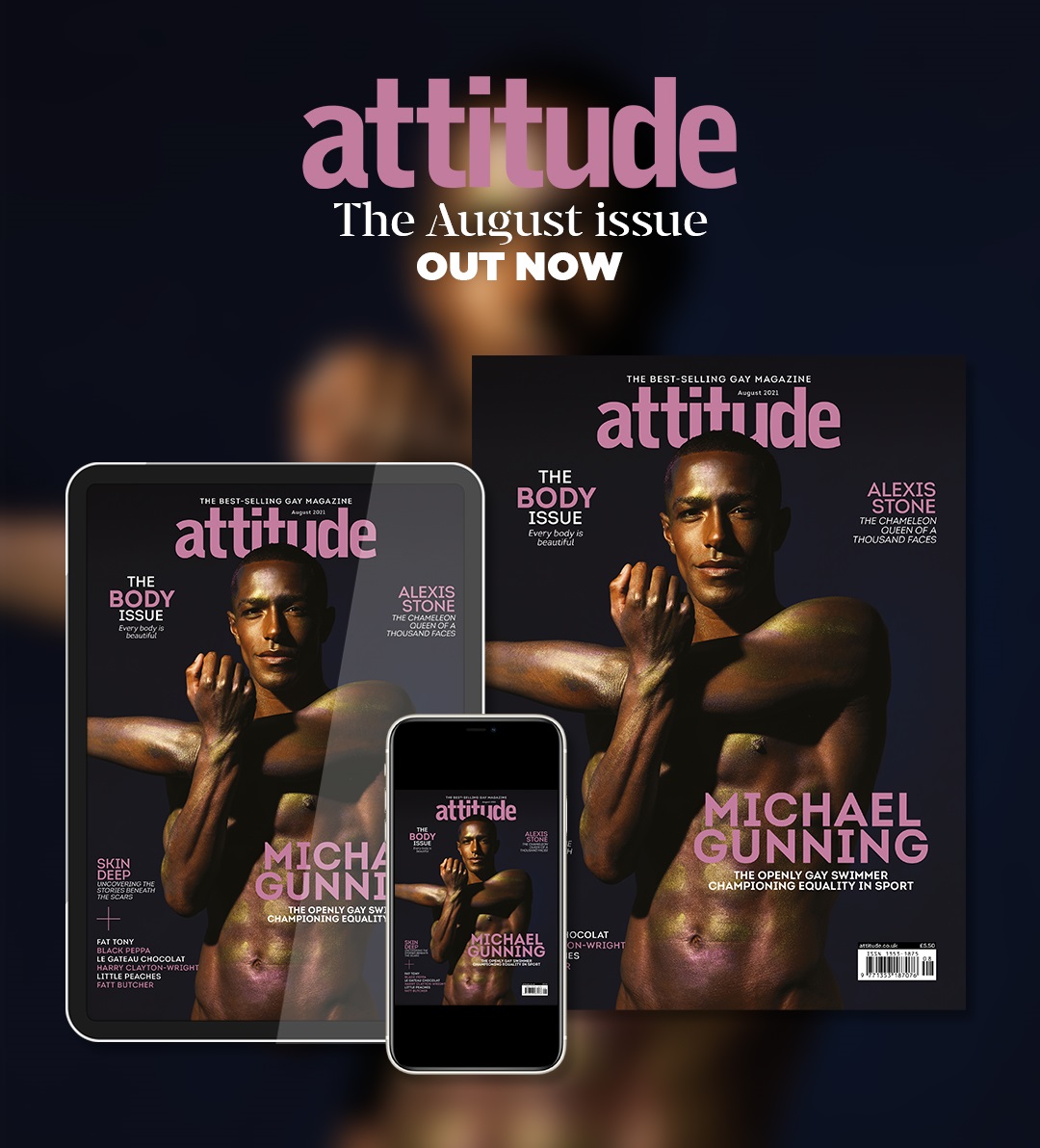Reclaim Pride: Thousands of LGBTQ activists take to streets of London
The march was organised by the LGBTQ campaigner Peter Tatchell, who wanted to have a Pride march free of commercial sponsors and to refocus on human rights.

Words: Alastair James; pictures: Peter Tatchell Foundation
An estimated 2,500 people got “back to the roots of Pride” as they marched through London at the weekend demanding that the UK Government and the Prime Minister, Boris Johnson, stop stalling on LGBTQ rights.
The march, organised by Peter Tatchell, took place on Saturday (24 July) and aimed to reclaim Pride for the community free of commercial sponsors, and refocus on human rights.
The official London Pride march is currently scheduled to be held on 11 September.

“Back to the roots of Pride”
Speaking to Attitude following the march, Peter Tatchell described it as an “awesome” sight to see people reclaiming Pride for the community and human rights.
“The community-led Pride march got back to the roots of Pride; being both a celebration and a protest for LGBTI+ rights, with five key LGBTI+ demands.”
Those demands were: ban LGBTI+ conversion therapy, reform the Gender Recognition Act to secure trans rights, safe haven for LGBTI+ refugees feeling persecution, decriminalisation of LGBTI+ people worldwide, and solidarity with Black Lives Matter.
It was organised in three weeks with no budget of funding. The event was supported by UK Black Pride, Diva magazine, Lesbian Visibility Week, London Trans Pride, the Peter Tatchell Foundation and Stand Up To LGBTQ+ Hate Crime, as well as many other LGBTI+ organisations and allies.
“In contrast to the official Pride in London, we did not charge people to participate, had no corporate sponsors or branding, and put LGBTI+ human rights centre stage.”
Mr. Tatchell believes the turn-out, while “great”, would have been much bigger had it not been for a surge on Covid cases following the easing of restrictions. Taking its cue from the original Pride march in London in 1972, the march over the weekend followed the same route, ending in Hyde Park with an informal picnic.
“The Reclaim Pride march mirrored the community-focus and liberation themes of the UK’s first Pride march in 1972, which I and 40 others helped organise. It was my 50th London Pride parade. We’ve set a precedent for a successful alternative to the way Pride in London’s has become commercialised and depoliticised.”

“You don’t need corporate sponsors to put on a brilliant Pride event”
In a statement on the Peter Tatchell Foundation website, Linda Riley of DIVA and Lesbian Visibility Week says the success of the Reclaim march “proves you don’t need corporate sponsors to put on a brilliant Pride event.”
And Lady Phyll Opoku-Gyimah of UK Black Pride said: “We are here to remind one and all that until racism, transphobia, and homophobia are eradicated, there will be no liberation for any of us.”
Speaking to Attitude in May when he announced plans for the “Reclaim Pride” march, Peter Tatchell said it was important to take the protest past Downing Street to highlight a lack of action in several areas.
While the UK Government has now started planning for a ban on conversion therapy in the UK, it has announced a short consultation on the issue so that “legitimate forms of pastoral support” are still allowed. There are concerns from some of those campaigning to ensure a ban comes into effect that religious groups who practice conversion therapy could continue to do so.
Last September, the UK Government also scrapped plans to update the Gender Recognition Act and make it easier for transgender people to have their gender legally recognised, with the government saying the current law provides the right “checks and balances”.
The Attitude Body Issue is out now.
Subscribe in print and get your first three issues for just £1 each, or digitally for just over £1.50 per issue.

